#ane talks
Note
i dont
yeah me too
#(bad) jokes aside#i think tumblr ate your message(?)#feel free to message me again if you want!#also @ everyone feel free to rant in my askbox regarding the past events as well; anonymously or not.#i'm on a content hiatus but i'm still here!#and this archive is free for everyone to discuss about the band (and their choices) <3#Anonymous#ane talks
7 notes
·
View notes
Text
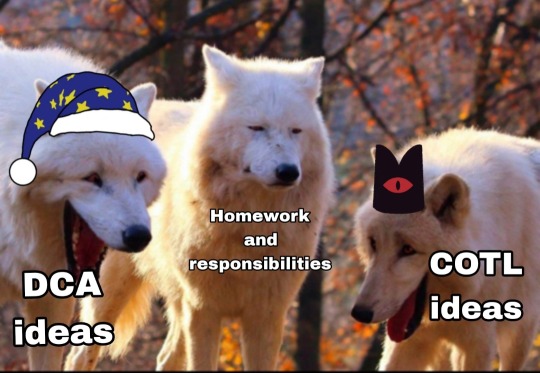
someone help me...
#ane talking#I just woke up and all I want to do is draw#but I just remembered that I have assignments to do#and there are many...#*crying*#I just want to be happy at Christmas#Diario de ane
2K notes
·
View notes
Text
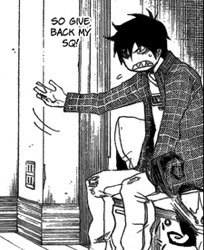
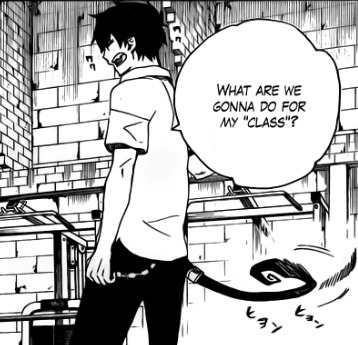
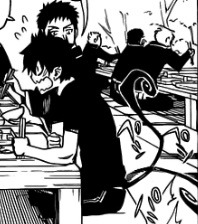

building a very important collection
505 notes
·
View notes
Text
everyone wants cas to have a cat for whatever reason but you guys have forgotten that the only time that man interacted with a cat he was yelling at it about cartoon murders in a town, and he seemed VISIBLY distressed by the number of cat photos online. he's not getting a cat. there is some kind of animal kingdom rivalry going on there. dean, however? idiot. will ignore allergies. generally is lonely and shit. likes cas and misses him when he's in the other room like a crazy person. very likely to see a cat with blue eyes that tilts his head and go awww. reminds me of cas. and bring it home. which is now a warzone btw. all day every day cas and the cat are just doing psychic warfare with each other and dean's just sitting in the kitchen oblivious, happy, and he scratches the underside of the cat's chin to pet him and cas is so mad he sets the oven on fire.
#idk i said cas and cat too much they look the ssme to me now#im about to drop off into neverland of this doesn't make senae im so sorry#doe is talking again#about cats#ans cas#ans cats and cas#spn posting#destiel#things and stuff and cats and dean
997 notes
·
View notes
Text






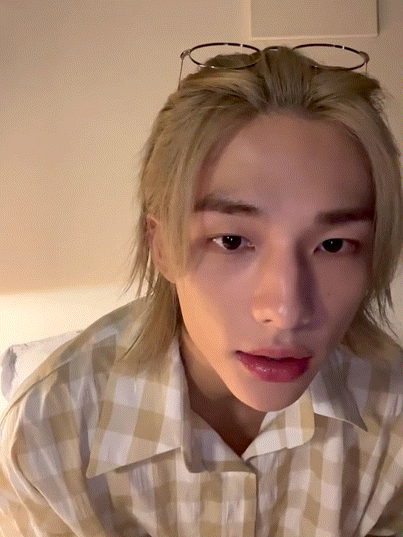


🥟: “thank you for giving us our 1st place at mucore. thanks to stay it feels like my empty day was filled up. more than being thankful about the first place, im more thankful about the love you give us. i feel it more lately, that im living thankfully everyday” [translation source]
#hyunjin#skz#stray kids#bystay#gifs#my human shaped eraser.. he takes away all the mistakes ans negativity of the day just by his presence#I LOVE UUUUUUUUU U U UU U U UU#hmmmm i think it’s so precious that he always hops on to live to personally say thank u and talk to us when something great happens..#😔 my sentimental bub…
710 notes
·
View notes
Text
Reading UTRH and in awe of how calculated and planned out all of Jason's little schemes are. Last minute shipment no one knows about? Red Hood does and he's blowing you up. Secret little meeting? Red Hood is crashing the party after leisurely eavesdropping. Oh wait he's cornered and fleeing? Nope, that's a microgun and wearable box of ammo he hid outside the door, you're still the sucker here.
Jason was putting in WORK
#a single mom who works two jobs#said jobs are 1) tormenting Bruce ans 2) tormenting Gotham's underworld#this also makes me retroactively annoyed with bad protrayals of Jason#because the capability of this man?? the skill??#also didn't realize how damn funny Jason would be#especially Black Mask#their conversations are some weird sitcom lmao#red hood#jason todd#under the red hood#utrh#dizarys talks
656 notes
·
View notes
Text
Okay I'm riled up about this rn so time for a history of economics lesson (rant) from me, a stranger on the internet
I'm a communist, I hate capitlism, so lemme just put that out there. But capitlism had its moments. Even marx had some praise for parts of capitlism.
And by far the most successful form of capitlism was Keynesian economics, as evident by the enormous increase in living standards in those countries which adopted it between the 1930s and 1970s.
What's Keynesian economics? The idea that capitlism can't survive on its own, and must be supported by government spending at the poorest ends of society and taxes at the richest ends of society (essentially the opposite of trickle down economics) as well as strong regulations on certain industries like banking.
It basically started in 1936 with President Roosevelt who was a personal friend of John Keynes (who the theory is named after).
Roosevelt implemented Keynesian economics to great effect; he raised the top tax rate to 94% (he actually wanted a 100% tax rate on the highest incomes, essentially creating a maximum wage, but the senate negotiated down to 94%) and similarly high corporate tax rates, he created the first ever minimum wage, created the first ever unemployment benefit, created social security in America, pension funds, and increased public spending on things like public utilities and infrastructure, national parks, etc. Which created about 15 million public sector jobs.
This ended the great depression and eventually lead to America winning world War 2, after which many countries followed suit in implementing similar policies, including UK, Australia, and NZ (apologies for the anglosphere-centric list here but they're the countries I'm personally most familiar with so bare with me)
Over the next 40 years these countries had unprecedented growth in living standards and incomes, and either decreasing or stable wealth inequality, and housing prices increasing in line with inflation. Virtually every household bought a car and a TV, rates of higher education increased dramatically, america put a man on the moon, and so on.
Then it all abruptly ended in the 80s and the answer is plain and obvious. 1979 thatcher became UK prime minister. 1981 reagan became US president. 1983 the wage accords were signed in aus. 1984 was the start of rogernomics in NZ (Someone link that Twitter thread of the guy who posts graphs of economic trends and points out where reagan became president)
(Also worth noting those last two in NZ and Aus were both implemented by 'left' leaning governments, but they are both heavily associated with right wing policies.)
This marked the beginning of trickle down economics: tax cuts, privatization of publicly owned assets, reduction in public spending, and deregulation of the finance sector. The top tax rates are down to the low 30s in most of these countries, down from the 80s/90s it was prior. Now THATS a tax cut.
And what happened next?
Wages stagnated. Housing prices skyrocketed. Bankers got away with gambling on the economy. Public infrastruce and utilies degraded. And wealth inequality now exceeds France in 1791.
I don't know how anyone can deny the evidence if they see it, but there's so much propaganda and false information that a lot of people just don't see the evidence.
Literally all the evidence supports going back to Keynesian economics but now that the rich have accumulated so much wealth it's virtually impossible to democratically dethrone them when they have most of the politicians on both the right and the left in their pocket.
Unfortunately it was the great depression and ww2 that gave politicians the political power to implement these policies the first time around. Some thought the 2008 crash would spur movement back towards Keynesianism (which it actually did in Iceland, congrats to them), I hoped covid would force governments to now, but nope.
All these recent crises' seem to have just pushed politics further and further right, with more austerity and tax cuts.
I don't really have a message or statement to end on other than shits fucked yo.
#also this is purely talking about the economics side of things#i know pre-80s the social side of politics was fucked despite the increasing living standards#with jim crow laws ans segregation and countless anti-queer laws etc.#and i know you canr seperate the economy entirely from social aspects of politics#but for the purposes of this post this is about the theoretical implications of different forms of capitlism#thats also why im not mentioning the recent descent towards fascism even tho it is closely tied to the economy#anyway#so yeah ive been reading a lot on economics lately#capitlism#economy#Keynesian economics#communism
5K notes
·
View notes
Text
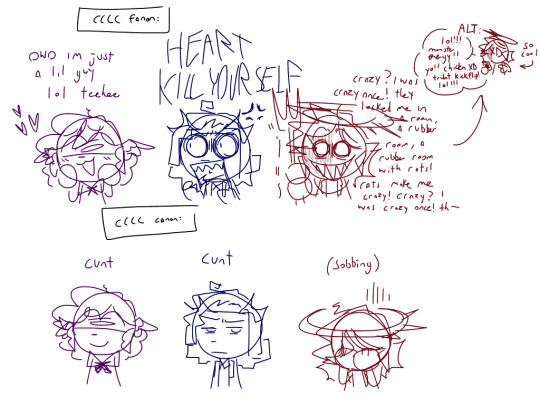
say it with me everyone: Heart is not A Baby, Mind is not a Jackass, and Soul is not Crazy. (or alternatively Cool/Laid back 24/7)
They have layers like onions or however the quote goes idk
#This is not to anyone in particular btw I was just talking abt cccc w a Mutual ans had to visualize a specific part of the convo into art#Cccc#chonny jash#chonnys charming chaos compendium#This is so messy sorry lmaoooo like I said it was on the spot for a disc convo but thought it was fire enough the post tbh#kys joke#These characterizations are ok if it’s a silly or fluff interpretation/fic but if it’s a serious fic and they act like this I explode
266 notes
·
View notes
Text
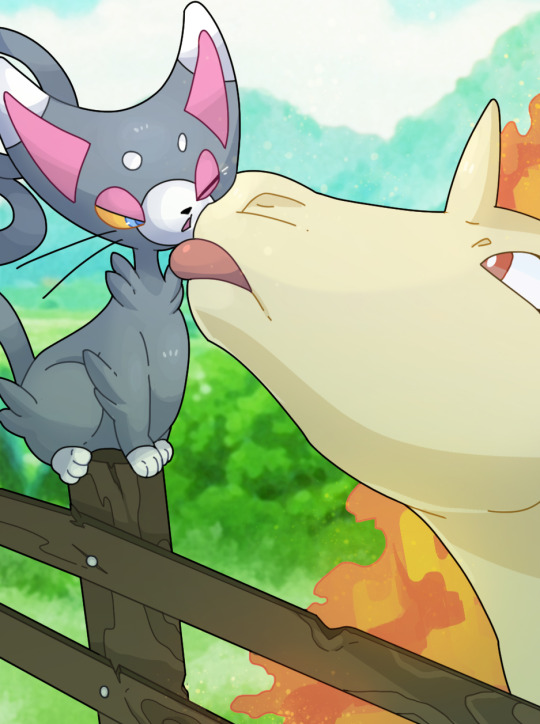
Mlem
#pkmn irl#pokeblogging#pokemon irl#clay talks#poke pics#glameow#rapidash#Dashy has taken a liking to one of our barn Glameow ans its. really cute
292 notes
·
View notes
Text
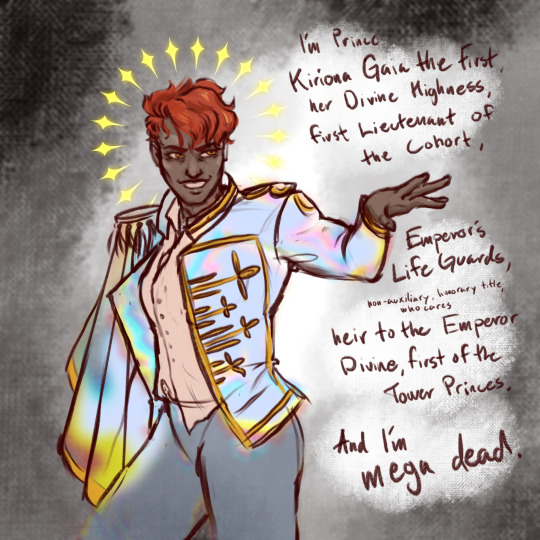
Babygirl your evil identify crisis and rockin dead bod have bewitched me body and soul. Now let me please know what the Fuck went wrong w u off screen
#ntn spoilers#nona the ninth spoilers#the locked tomb#tlt spoilers#kiriona gaia#gideon nav#crying screaming throwing up when she woke up. and then she started talking#listen i ADORE the came back wrong trope. i just. I'm just so sad about it tho#cant wait for alecto to be half killing john preferably without destroying thw world in the process#ans half harrow chasing gideon around trying to convince her that no she did all those things bc she actually loves gideon#aaughh. hopefully will have energy for more than sketches w some colors slapped on. but needed. to draw She#oppost#majsart
2K notes
·
View notes
Text
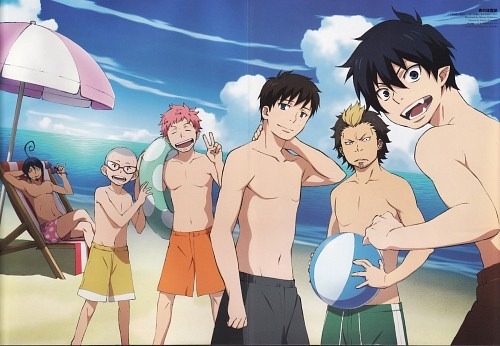
WHAT THE FUCK HES SHIRTLESS?!! I KNOW HE WAS NAKED IN THE MANGA BUT ITS SO…I FEEL LIKE IM SEEING A VICTORIAN WOMAN’S SHOULDER FOR THE FIRST TIME!! Anyway, mepphy half naked im embawwased🫣 also those abs are not real that man eats like shit and his ass is NOT working out🤨
#my wife💖#mephisto pheles#ao no exorcist#blue exorcist#ane#I know I’m talking at nothing but I appreciate the 6 other mephisto fans liking my posts
54 notes
·
View notes
Note
Thank you for all the work you do! 🖤🧡🖤🧡🖤
omgg you’re welcome, this really means a lot!! thank you so so so much for the support 🖤🦂🧡
7 notes
·
View notes
Text
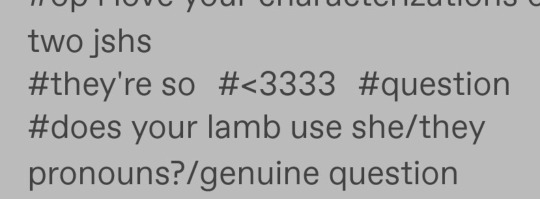
thank you for your ask @cultishlamby , i will take it as an opportunity to ramble a bit ;)
Short answer:

long answer with a little background:
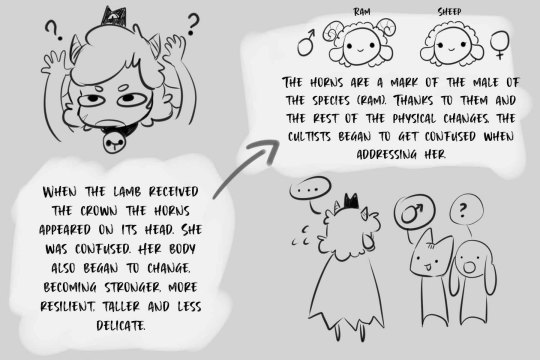
There was a time when her appearance was a problem, due to the confusion around her, because of this she limited the use of accessories and clothing in general outside of her mantle and other clothing necessary in ceremonies.
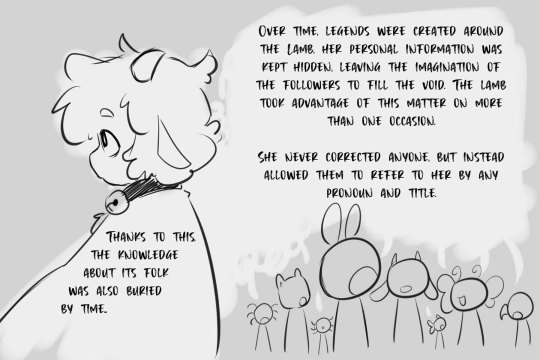
At first she did feel uncomfortable in the midst of the change, but over time it became insignificant. The mystery about her own existence helped create that divine leader aura that she needed.
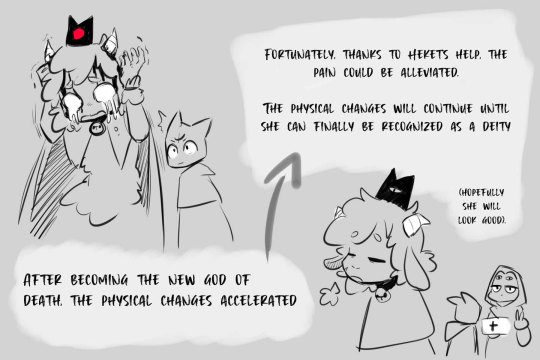
As extra notes:
• The first generation of cultists knew the gender and name of the Lamb.
• At first none of the bishops knew the gender of the Lamb (because well... they just had to sacrifice it and they were a little busy afterwards) but after joining the cult they discovered it.
• Leshy was the first to find out, but it was irrelevant.
• Narinder was the last to find out (he actually thought she was male)... which is ironic because he is the one who has known her the longest, but at no time did he take the time to pay attention beyond what was necessary.
There is a small comic of this in this post (third image, bottom left)
Bonus:
The Lamb after learning how distracted Narinder can be (he ended up eating plates of grass for a long time)
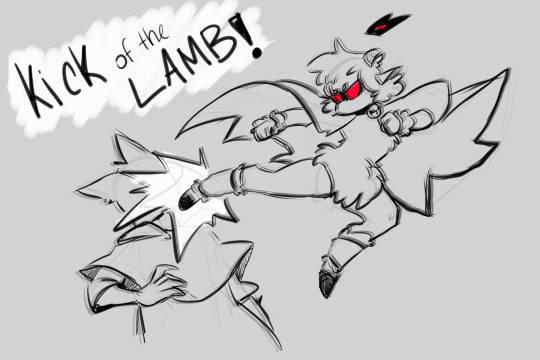
#ane talking#ane doodles yay!#cotl lore#cotl#cult of the lamb#cotl the lamb#I'm going to count the last part as#narilamb#with their particular.... relationship#Chain for a promise AU#CFP au
554 notes
·
View notes
Text
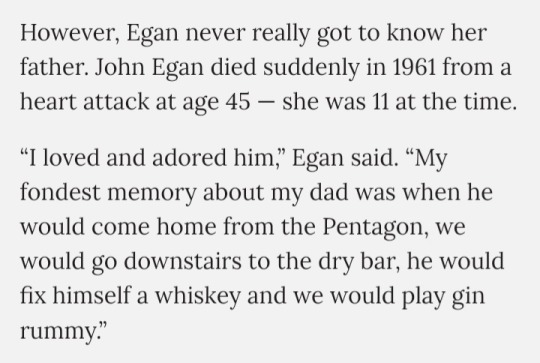
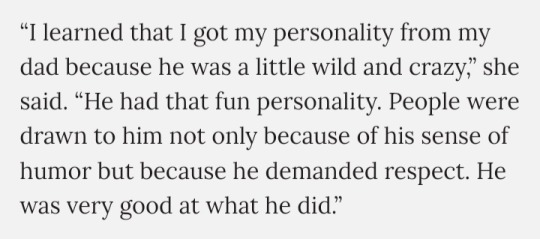
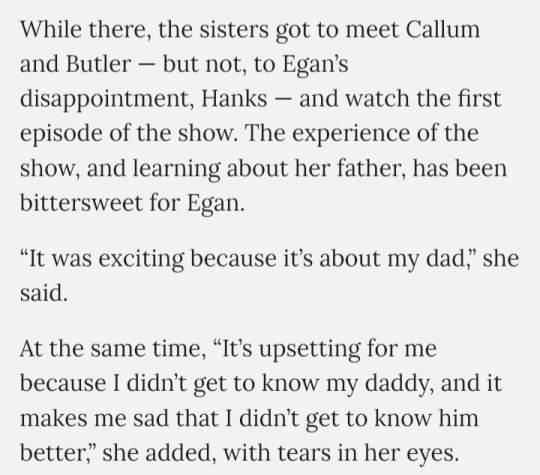
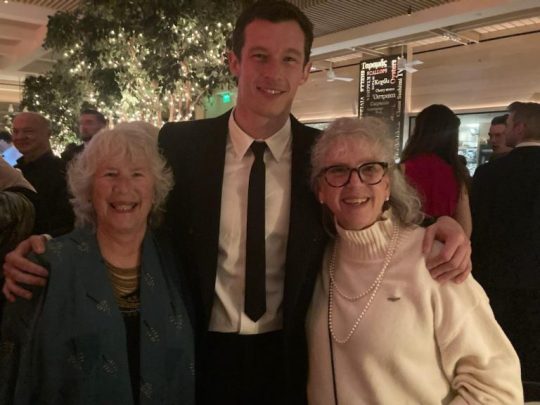
currently crying
#i had never seen these before#and god did it make me emotional#maybe its because my mother did also loose her father at eleven ans she talks about him just like John's daughter does#it makes me sad he never got to seem them grow up#i can't stop crying yall#send help#john bucky egan#major john egan#john egan#callum turner#mota#masters of the air
53 notes
·
View notes
Text
have this fun headcanon that dean never says I love you back out loud because he just like. thinks he does all the time and literally just forgets because he's an idiot.
like when they get cas back he just clutches him close and buries his face in Cas' shoulder and he's like you fucking idiot. you have me. you always had me. whatever you want cas. and he cries and like that's that. and every time cas says it to him in their life after — which btw. that takes a while for cas too because he's just so used to loving dean from a distance that he can't believe he's allowed to have it in the palm of his hand..he can't believe that he's allowed to be open and loud and fearless and absolutely without shame with it. so he has to get used to that, but he does get there. anyway. whenever he does say I love you to dean, the first few times dean's like stuck in between panic and awe and every time after that he's just SO FLUSTERED because he's HOPELESS and he has a CRUSH on this guy even tho they're literally living together and do nasty things to each other on a regular basis but like god forbid they hold hands right. anyway. it's not emotional constipation so much emotional confusion because he really doesn't know what to do with all this easy affection and love because he's never felt it quite like this before where it's a firework in his belly and fizzy champagne bubbles in his blood and this delicious heat under his skin that makes him feel young and giddy and stupid and he loves it so much but it also just turns him into a mess and so he doesn't respond with words and often just resorts to something foolish like a whispered alright or shuddup or he just kisses cas and thinks me too but maybe he doesn't say it. he really doesn't say it. but he doesn't know that he doesn't say it because he's hopelessly in love and the moments all blur when cas is there and so near and with him.
anyway. months down the line..maybe it's even been more than a year. who knows. it's just something really mundane. in the unwritten fic, it's just one of those nights that start out warm and cosy and turn frigid by the time it's midnight and dean and cas have kicked off the covers and they're both sleeping (because cas sleeps now yes he's an angel but he sleeps and eats and does things that make him feel untethered and human and alive because i said so don't talk to me) and dean wakes up because there's a draft on his legs and it makes him shiver and he squints at Cas who is impervious to the cold but he is curled away from dean because they'd moved away from each other in the middle of the night and dean's NOT having that HE'S COLD so he groans and crawls towards cas and drapes himself over his body and his skin's cool too because it's been exposed to the breeze this whole time so dean's whining and slapping cas awake and he's like come on, man and cas groans and scoffs and goes UGH DEAN but the body underneath him warms really quick and Dean snuggles close and cas magics the covers so they tuck themselves around them both and dean's like. sleepy happy sighing into Cas' chest and he says thanks, sweetheart. I love you. and cas wakes up like he's been electrocuted and dean startles because cas did and they look at each other and cas is like what did you say? and dean's SO CONFUSED because again HE'S AN IDIOT he literally DID NOT REALISE that he HAS BEEN SO HAPPY. AND PREOCCUPIED WITH THE BEING IT BUT HE HAS NOT BEEN SAYING IT and so he's like what the fuck what. and cas is like. dean..and dean's like ??? I love you??? why are you acting weird??? this is normal every day conversation??? are you okay?? and cas is like .....oh my god and dean's like you are scaring me cas and cas is like no..no dean..it's just. it's stupid. but he's jumping into Dean's arms now tucking his head in his neck and there's that break in his voice like he's overwhelmed like he was when he first said.those words to dean and dean's like cas? cas??? and cas is like. you've never. i mean. i knew. i KNEW. and you've prayed. before. unconsciously. but you've never said. and dean is like stop fucking with me of course i have. and cas is like baby it's okay let's go back to sleep. but he's laughing and crying and he's HAPPY RIGHT like he's giddy and dean's losing his mind and he's having a crisis and he lies back down in bed and suddenly it's hitting him HOW STUPID he's been because like YEAH. he has NEVER actually..he really has never. said it.
and like he's like shit. cas shit.
and cas is like. no hey it's alright. i knew. I promise I knew. i just. i
and dean doesn't need to hear this he also doesn't need cas to defend him because this is just..like..it's not even neglectful or anything this is LITERALLY IDIOTIC it's literally like. SILLY STUPID like he is KICKING himself because WHAT THE FUCK
but then he's sitting up very seriously and he takes cas' face in his hands and he's like. i love you. I love you very much. I love you more than I've loved anything. more than pie. more than BABY. you're the love of my whole goddamn life. okay??
and cas is laughing again and crying a little bit and he's like oh god this is SILLY they are being SILLY. but dean keeps saying it over and over because he has all this time to make up for where he DIDN'T EVEN KNOW HE WASN'T SAYING IT and he kisses him between each little confession and it's silly and sweet and soft and everything good. and then they have sex and cry and fall asleep in each other's arms the end.
#sorry this got long#the unwritten fic has a 5000 word outline#ans it is all like this#if any of you happen to fic this TAG ME so i can despair about how I can't do anything and also be happy about this being a scene fr#doe is talking again#destiel headcanons#y yo a ti but they're just stupid
621 notes
·
View notes
Note
Hey! It has been on my mind lately and i just wanna ask..idk if it would make sense but i just noticed that nowadays ppl cant separate the authors and their books (ex. when author wrote a story about cheating and ppl starts bashing the author for romanticizing cheating and even to a point of cancelling the author for not setting a good/healthy example of a relationship) any thoughts about it?
I have many, many thoughts on this, so this may get a little unwieldy but I'll try to corall it together as best I can.
But honestly, I think sometimes being unable to separate the author from the work (which is interesting to me to see because some people are definitely not "separating" anything even though they think they are; they just erase the author entirely as an active agent, isolate the work, and call it "objectivity") has a lot to do with some people being unable to separate the things they read from themselves.
I'm absolutely not saying it's right, but it's an impulse I do understand. If you read a book and love it, if it transforms your life, or defines a particular period of your life, and then you find out that the author has said or done something awful--where does that leave you? Someone awful made something beautiful, something you loved: and now that this point of communion exists between you and someone whose views you'd never agree with, what does that mean for who you are? That this came from the mind of a person capable of something awful and spoke to your mind--does that mean you're like them? Could be like them?
Those are very uncomfortable questions and I think if you have a tendency to look at art or literature this way, you will inevitable fall into the mindset where only "Good" stories can be accepted because there's no distinction between where the story ends and you begin. As I said, I can see where it comes from but I also find it profoundly troubling because i think one of the worst things you can do to literature is approach it with the expectation of moral validation--this idea that everything you consume, everything you like and engage with is some fundamental insight into your very character as opposed to just a means of looking at or questioning something for its own sake is not just narrow-minded but dangerous.
Art isn't obliged to be anything--not moral, not even beautiful. And while I expend very little (and I mean very little) energy engaging with or even looking at internet / twitter discourse for obvious reasons, I do find it interesting that people (online anyway) will make the entire axis of their critique on something hinge on the fact that its bad representation or justifying / romanticizing something less than ideal, proceeding to treat art as some sort of conduit for moral guidance when it absolutely isn't. And they will also hold that this critique comes from a necessarily good and just place (positive representation, and I don't know, maybe in their minds it does) while at the same time setting themselves apart from radical conservatives who do the exact same thing, only they're doing it from the other side.
To make it abundantly clear, I'm absolutely not saying you should tolerate bigots decrying that books about the Holocaust, race, homophobia, or lgbt experiences should be banned--what I am saying, is that people who protest that a book like Maus or Persepolis is going to "corrupt children", and people who think a book exploring the emotional landscape of a deeply flawed character, who just happens to be from a traditionally marginalised group or is written by someone who is, is bad representation and therefore damaging to that community as a whole are arguments that stem from the exact same place: it's a fundamental inability, or outright refusal, to accept the interiority and alterity of other people, and the inherent validity of the experiences that follow. It's the same maniacal, consumptive, belief that there can be one view and one view only: the correct view, which is your view--your thoughts, your feelings.
There is also dangerous element of control in this. Someone with racist views does not want their child to hear anti-racist views because as far as they are concerned, this child is not a being with agency, but a direct extension of them and their legacy. That this child may disagree is a profound rupture and a threat to the cohesion of this person's entire worldview. Nothing exists in and of and for itself here: rather the multiplicity of the world and people's experiences within it are reduced to shadowy agents that are either for us or against us. It's not about protecting children's "innocence" ("think of the children", in these contexts, often just means "think of the status quo"), as much as it is about protecting yourself and the threat to your perceived place in the world.
And in all honestt I think the same holds true for the other side--if you cannot trust yourself to engage with works of art that come from a different standpoint to yours, or whose subject matter you dislike, without believing the mere fact of these works' existence will threaten something within you or society in general (which is hysterical because believe me, society is NOT that flimsy), then that is not an issue with the work itself--it's a personal issue and you need to ask yourself if it would actually be so unthinkable if your belief about something isn't as solid as you think it is, and, crucially, why you have such little faith in your own critical capacity that the only response these works ilicit from you is that no one should be able to engage with them. That's not awareness to me--it's veering very close to sticking your head in the sand, while insisting you actually aren't.
Arbitrarily adding a moral element to something that does not exist as an agent of moral rectitude but rather as an exploration of deeply human impulses, and doing so simply to justify your stance or your discomfort is not only a profoundly inadequate, but also a deeply insidious, way of papering over your insecurities and your own ignorance (i mean this in the literal sense of the word), of creating a false and dishonest certainty where certainty does not exist and then presenting this as a fact that cannot and should not be challenged and those who do are somehow perverse or should have their characters called into question for it. It's reductive and infantilising in so many ways and it also actively absolves you of any responsibility as a reader--it absolves you of taking responsibility for your own interpretation of the work in question, it absolves you of responsibility for your own feelings (and, potentially, your own biases or preconceptions), it absolves you of actual, proper, thought and engagement by laying the blame entirely on a rogue piece of literature (as if prose is something sentient) instead of acknowledging that any instance of reading is a two-way street: instead of asking why do I feel this way? what has this text rubbed up against? the assumption is that the book has imposed these feelings on you, rather than potentially illuminated what was already there.
Which brings me to something else which is that it is also, and I think this is equally dangerous, lending books and stories a mythical, almost supernatural, power that they absolutely do not have. Is story-telling one of the most human, most enduring, most important and life-altering traditions we have? Yes. But a story is also just a story. And to convince yourself that books have a dangerous transformative power above and beyond what they are actually capable of is, again, to completely erase people's agency as readers, writers' agency as writers and makers (the same as any other craft), and subsequently your own. And erasing agency is the very point of censors banning books en masse. It's not an act of stupidity or blind ignorance, but a conscious awareness of the fact that people will disagree with you, and for whatever reason you've decided that you are not going to let them.
Writers and poets are not separate entities to the rest of us: they aren't shamans or prophets, gifted and chosen beings who have some inner, profound, knowledge the rest of us aren't privy to (and should therefore know better or be better in some regard) because moral absolutism just does not exist. Every writer, no matter how affecting their work may be, is still Just Some Guy Who Made a Thing. Writing can be an incredibly intimate act, but it can also just be writing, in the same way that plumbing is plumbing and weeding is just weeding and not necessarily some transcendant cosmic endeavour in and of itself. Authors are no different, when you get down to it, from bakers or electricians; Nobel laureates are just as capable of coming out with distasteful comments about women as your annoying cousin is and the fact that they wrote a genre-defying work does not change that, or vice-versa. We imbue books with so much power and as conduits of the very best and most human traits we can imagine and hope for, but they aren't representations of the best of humanity--they're simply expressions of humanity, which includes the things we don't like.
There are some authors I love who have said and done things I completely disagree with or whose views I find abhorrent--but I'm not expecting that, just because they created something that changed my world, they are above and beyond the ordinarly, the petty, the spiteful, or cruel. That's not condoning what they have said and done in the least: but I trust myself to be able to read these works with awareness and attention, to pick out and examine and attempt to understand the things that I find questionable, to hold on to what has moved me, and to disregard what I just don't vibe with or disagree with. There are writers I've chosen not to engage with, for my own personal reasons: but I'm not going to enforce this onto someone else because I can see what others would love in them, even if what I love is not strong enough to make up for what I can't. Terrance Hayes put perfectly in my view, when he talks about this and being capable of "love without forgiveness". Writing is a profoundly human heritage and those who engage with it aren't separate from that heritage as human because they live in, and are made by, the exact same world as anyone else.
The measure of good writing for me has hardly anything to do with whatever "virtue" it's perceived to have and everything to do with sincerity. As far as I'm concerned, "positive representation" is not about 100% likeable characters who never do anything problematic or who are easily understood. Positive representation is about being afforded the full scope of human feelings, the good, the bad, and the ugly, and not having your humanity, your dignity, your right to exist in the world questioned because all of these can only be seen through the filter of race, or gender, religion, or ethicity and interpreted according to our (profoundly warped) perceptions of those categories and what they should or shouldn't represent. True recognition of someone's humanity does not lie in finding only what is held in common between you (and is therefore "acceptable", with whatever you put into that category), but in accepting everything that is radically different about them and not letting this colour the consideration you give.
Also, and it may sound harsh, but I think people forget that fictional characters are fictional. If I find a particularly fucked up relationship dynamic compelling (as I often do), or if I decide to write and explore that dynamic, that's not me saying two people who threaten to kill each other and constantly hurt each other is my ideal of romance and that this is exactly how I want to be treated: it's me trying to find out what is really happening below the surface when two people behave like this. It's me exploring something that would be traumatizing and deeply damaging in real life, in a safe and fictional setting so I can gain some kind of understanding about our darker and more destructive impulses without being literally destroyed by them, as would happen if all of this were real. But it isn't real. And this isn't a radical or complex thing to comprehend, but it becomes incomprehensible if your sole understanding of literature is that it exists to validate you or entertain you or cater to you, and if all of your interpretations of other people's intentions are laced with a persistent sense of bad faith. Just because you have not forged any identity outside of this fictional narrative doesn't mean it's the same for others.
Ursula K. le Guin made an extremely salient point about children and stories in that children know the stories you tell them--dragons, witches, ghouls, whatever--are not real, but they are true. And that sums it all up. There's a reason children learning to lie is an incredibly important developmental milestone, because it shows that they have achieved an incredibly complex, but vitally important, ability to hold two contradictory statements in their minds and still know which is true and which isn't. If you cannot delve into a work, on the terms it sets, as a fictional piece of literature, recognize its good points and note its bad points, assess what can have a real world impact or reflects a real world impact and what is just creative license, how do you possible expect to recognize when authority and propaganda lies to you? Because one thing propaganda has always utilised is a simplistic, black and white depiction of The Good (Us) and The Bad (Them). This moralistic stance regarding fiction does not make you more progressive or considerate; it simply makes it easier to manipulate your ideas and your feelings about those ideas because your assessments are entirely emotional and surface level and are fuelled by a refusal to engage with something beyond the knee-jerk reaction it causes you to have.
Books are profoundly, and I do mean profoundly, important to me-- and so much of who I am and the way I see things is probably down to the fact that stories have preoccupied me wherever I go. But I also don't see them as vital building blocks for some core facet or a pronouncement of Who I Am. They're not badges of honour or a cover letter I put out into the world for other people to judge and assess me by, and approve of me (and by extension, the things I say or feel). They're vehicles through which I explore and experience whatever it is that I'm most caught by: not a prophylactic, not a mode of virtue signalling, and certainly not a means of signalling a moral stance.
I think at the end of the day so much of this tendency to view books as an extension of yourself (and therefore of an author) is down to the whole notion of "art as a mirror", and I always come back to Fran Lebowitz saying that it "isn't a mirror, it's a door". And while I do think it's important to have that mirror (especially if you're part of a community that never sees itself represented, or represented poorly and offensively) I think some people have moved into the mindset of thinking that, in order for art to be good, it needs to be a mirror, it needs to cater to them and their experiences precisely--either that or that it can only exist as a mirror full stop, a reflection of and for the reader and the writer (which is just incredibly reductive and dismissive of both)--and if art can only exist as a mirror then anything negative that is reflected back at you must be a condemnation, not a call for exploration or an attempt at understanding.
As I said, a mirror is important but to insist on it above all else isn't always a positive thing: there are books I related to deeply because they allowed me to feel so seen (some by authors who looked nothing like me), but I have no interest in surrounding myself with those books all the time either--I know what goes on in my head which is precisely why I don't always want to live there. Being validated by a character who's "just like me" is amazing but I also want--I also need-- to know that lives and minds and events exist outside of the echo-chamber of my own mind. The mirror is comforting, yes, but if you spend too long with it, it also becomes isolating: you need doors because they lead you to ideas and views and characters you could never come up with on your own. A world made up of various Mes reflected back to me is not a world I want to be immersed in because it's a world with very little texture or discovery or room for growth and change. Your sense of self and your sense of other people cannot grow here; it just becomes mangled.
Art has always been about dialogue, always about a me and a you, a speaker and a listener, even when it is happening in the most internal of spaces: to insist that art only ever tells you what you want to hear, that it should only reflect what you know and accept is to undermine the very core of what it seeks to do in the first place, which is establish connection. Art is a lifeline, I'm not saying it isn't. But it's also not an instruction manual for how to behave in the world--it's an exploration of what being in the world looks like at all, and this is different for everyone. And you are treading into some very, very dangerous waters the moment you insist it must be otherwise.
Whatever it means to be in the world, it is anything but straightforward. In this world people cheat, people kill, they manipulate, they lie, they torture and steal--why? Sometimes we know why, but more often we don't--but we take all these questions and write (or read) our way through them hoping that, if we don't find an answer, we can at least find our way to a place where not knowing isn't as unbearable anymore (and sometimes it's not even about that; it's just about telling a story and wanting to make people laugh). It's an endless heritage of seeking with countless variations on the same statements which say over and over again I don't know what to make of this story, even as I tell it to you. So why am I telling it? Do I want to change it? Can I change it? Yes. No. Maybe. I have no certainty in any of this except that I can say it. All I can do is say it.
Writing, and art in general, are one of the very, very, few ways we can try and make sense of the apparently arbitrary chaos and absurdity of our lives--it's one of the only ways left to us by which we can impose some sense of structure or meaning, even if those things exists in the midst of forces that will constantly overwhelm those structures, and us. I write a poem to try and make sense of something (grief, love, a question about octopuses) or to just set down that I've experienced something (grief, love, an answer about octpuses). You write a poem to make sense of, resolve, register, or celebrate something else. They don't have to align. They don't have to agree. We don't even need to like each other much. But in both of these instances something is being said, some fragment of the world as its been perceived or experienced is being shared. They're separate truths that can exist at the same time. Acknowledging this is the only means we have of momentarily bridging the gaps that will always exist between ourselves and others, and it requires a profound amount of grace, consideration and forbearance. Otherwise, why are we bothering at all?
#this is so much longer than i intended but yeah. those are my very long 2 cents#tbh i also think social media makes it worse in a way especially bc “transparency” has become a form of public vetting which is insane to m#me* transparency and honesty are not the same thing ans its ludicrous that this is where we're at and while we all have to live with this#demand for transparency i do think it affects writers differently bc the whole art as mirror thing comes to the fore in this argument#why would you sit with your feelings about a book when its easier and more accessible for you to @ the authors twitter handle#but anyway#ask#anonymous#book talks
398 notes
·
View notes